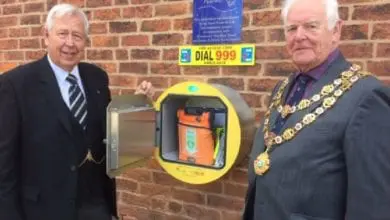Warnings after ‘sham charity appeals’

An alert has been issued to warn the public of ‘sham charity appeals’.
The Charity Commission, the independent regulator of charities in England and Wales, has issued a statement alongside information based on reports made during the past month, to Action Fraud.
The National Fraud Investigation Bureau (NFIB) has gathered information about two frauds, where social media or email platforms are being used to encourage members of the public to donate money to sham charity appeals, including a ‘Migrant Helpline’.
1. Fake animal welfare charity overseas
The NFIB has discovered that criminal groups based in Spain or Cyprus are using social media platforms to target donors from the UK.
The money is then laundered from the UK to overseas and rather than be used to tackle animal cruelty, these charitable funds are then diverted to support criminal activity, either here or on the Continent.
2. Fake ‘Migrant Helpline’
Fraudsters are sending out a high number of phishing emails to personal and business email addresses purporting to be from ‘Migrant Helpline’ – charity email addresses could also be targeted.
Migrant Helpline is a genuine charity, but fraudsters have been using its name to trick members of the public into becoming victims of this fraud. It should be noted that this fraud is in no way related to the real charity.
Carl Mehta, head of investigations and enforcement at the Charity Commission, said: “The British public donate millions of pounds every year to good causes, any attempt to abuse this generosity is reprehensible.
“Do not be put off donating by these malicious scams, but follow the Commission’s advice on safer giving.”
The Chairty Commission has issued the following guidelines:
Safer Giving
- genuine charities are registered with the Charity Commission and print their registration details on all documentation, collection bags, envelopes, electronic communications etc – check these details exist and are genuine by visiting the Commission’s online Register of Charities
- if the collection is for a charity that you know is genuine, check the collection is authorised by asking the charity directly, using verifiable contact details
- watch out for poor grammar/ spelling in emails and other documents, including collection envelopes – this can be a tell-tale sign of fraudulent activity
- send your donation to the charity directly. This may mean going to a little more trouble, but you can be sure your donation will get to where it’s intended
The public can also take simple steps to keep safe online, advice is available on: Get Safe Online the official cyber-crime prevention website.
Charities can visit www.charitiesagainstfraud.org.uk for advice and top tips on how to protect their charity against fraud.







